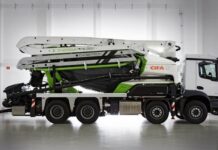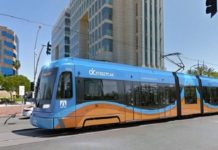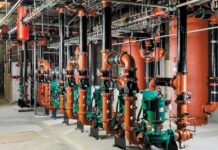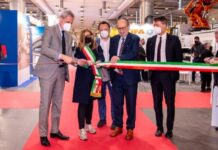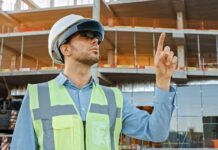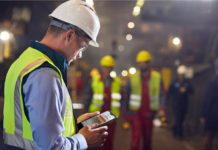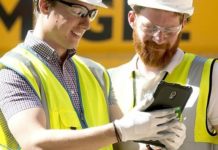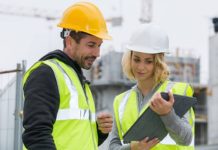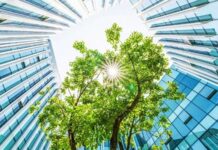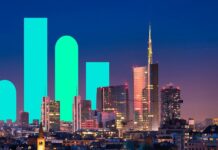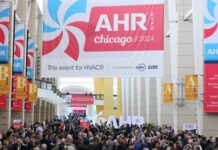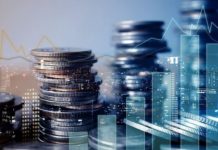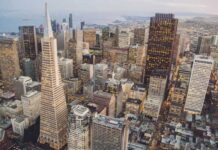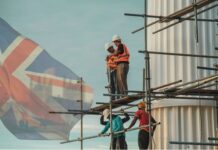Dubai Electricity and Water Authority (DEWA) has signed a memorandum of understanding with First Solar to develop a programme for training on solar energy technology to obtain specialised certificates to support the Green Economy For Sustainable Development initiative.
The initiative was launched by HH Sheikh Mohammed bin Rashid Al Maktoum, Vice President and Prime Minister of the UAE and Ruler of Dubai, and also looks at the necessity to focus on all fields, especially of a technical and modern.
HE Saeed Mohammed Al Tayer, MD and CEO of DEWA, and Georges Antoun, COO of First Solar, signed the MOU, which aims to send engineers from DEWA to enrol in a training course organised by First Solar in collaboration with Arizona State University to achieve the Solar Energy Engineering and Commercialisation Certificatation (SEEC).
DEWA will nominate a number of its engineers for a 15-day training course in Arizona to develop their skills on the best solar energy technologies as well as the SEEC. Beforehand, DEWA will select a number of staff to go on a preparatory programme for two days, which will cover the latest technologies in the field of renewable energy.
Al Tayer said: “We are keen to develop and prepare UAE nationals capable of doing the necessary work across of the technical fields of renewable energy. So we signed this MOU to closely look at the latest technologies applied in the field of power generation. We aim to diversify our sources of power, so we relentlessly keep pace with state-of-the-art training programmes that are useful for DEWA. In this regard, DEWA is preparing and performing a lot of activities and training courses in all its departments, as well as in all educational and training organisations, either in the UAE or abroad.”
This is also a part of the Dubai Integrated Energy Strategy 2030 to achieve energy diversification by generating 1% of Dubai’s total power output from renewable energy in the Emirate of Dubai by 2020 and 5% by 2030.
After finishing the training course organised by First Solar, Both DEWA and First Solar will select the best three trainees to participate in the exchange programme to work in First Solar’s offices in the USA for six months. The programme will cover some of the fields of solar energy. At the end of this programme, a solar plant will be designed for DEWA, taking into account all the environmental requirements in Dubai. The three trainees will develop the solar plant and obtain an accreditation certificate from First Solar.
“The UAE’s singular focus on establishing a sustainable future is the result of its leaders’ visionary approach towards renewable energy in general and solar in particular,” said Georges Antoun.
“Our commitment to DEWA goes well beyond the construction of a world-class PV plant; by participating in this initiative we are looking to nurture a knowledge-based foundation, which will contribute to achieving Dubai’s renewable energy goals.”.
Setting up this photovoltaic solar plant is an important step towards achieving Dubai’s strategy, set by the Dubai Supreme Council of Energy to diversify its energy mix. This strategy aims to provide for Dubai’s increasing energy needs and secure an uninterrupted energy supply; solar energy will be part of the Emirate’s energy portfolio.
The Supreme Council oversees the Mohammed bin Rashid Al Maktoum Solar Park, which is managed and operated by DEWA. The Supreme Council approved the first phase of the project, which uses photovoltaic technology and has a capacity of 13MW, to be connected to DEWA’s network. This phase will be completed by October 2013.
At the same time as the MoU was being signed, the first shipment of photovoltaic solar panels were delivered to the Solar Park.
Since the project was announced, it has drawn wide attention from the business and energy sectors, as other solar power projects will be implemented in addition to the first park project. Upon competition of all its phases, the total capacity of the project will reach 1,000MW.
The existing regulatory and legislative frameworks in Dubai allows the formation of public-private partnerships in power generation projects. Several international developers have showed their interest in making investments in developing and carrying out the park’s projects.




